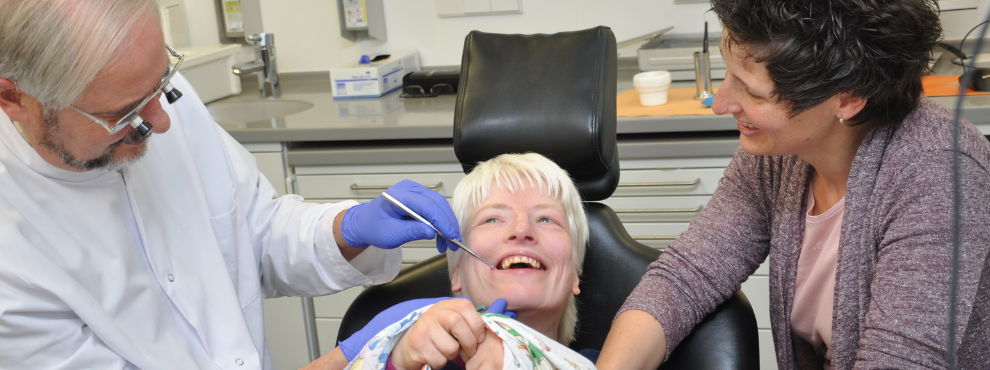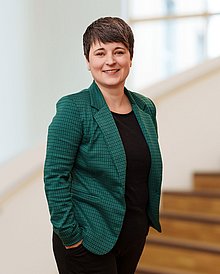Disability-orientated dentistry receives award
Silver Badge of Honour for two professors at Witten/Herdecke University: Prof. Dr Peter Cichon and Prof. Dr Andreas Schulte.

Prof. Dr Peter Cichon and Prof. Dr Andreas Schulte from the University of Witten/Herdecke (UW/H) have received the Silver Badge of Honour from the German Dental Association for their services to the dental treatment of people with disabilities. Both dentists have dedicated their entire professional careers to the treatment of people with disabilities and have been instrumental in implementing this difficult and rewarding task in the dental treatment spectrum, according to the statement from the Westphalia-Lippe Dental Association and the German Dental Association.
"This honour is a special recognition of the decades of work of all employees, students and doctors working at and for the chair," says Prof. Cichon. The dentist came to UW/H back in 1987 for a teaching position, where he initially founded a department for the dental treatment of people with disabilities, which would later develop into its own chair.
Every year, around 1,500 patients take advantage of the care on offer
Disability-orientated dentistry has been a high priority at the UW/H since its earliest years. The university is still the only university in Germany to have dedicated a chair to this dental speciality, making it an integral and compulsory part of the degree programme. The endowed chair was made possible by the Software AG Foundation, which has financed it since Prof Schulte was appointed in 2015. Around 1,500 patients are treated at the university dental clinic every year. Prof Dr Andreas Schulte knows: "People with disabilities deserve special attention in healthcare. There are physical or mental disabilities that make independent oral hygiene difficult, restrict chewing function, do not allow a balanced diet or otherwise impair oral health." The main aim of the BOZ department is to provide preventative treatment in order to preserve patients' own teeth for as long as possible. The "oral consultation" service, which is carried out together with a speech therapist and aims to improve swallowing and mouth closure in people with certain syndromes, also contributes to this.
The key to successful dental treatment is the relationship of trust between doctors and patients
Part of the teaching is to sensitise students to the different forms of disabilities. Above all, successful cooperation between patient and doctor is crucial for successful treatment, says dentist Prof Dr Andreas Schulte. For this reason, a special focus is placed on communication during the degree programme in order to enable students to respond flexibly and empathetically to the different needs of their patients. The Witten concept is a success: the BOZ department successfully treats 90 per cent of patients with disabilities while they are awake, with only 10 per cent requiring treatment under general anaesthetic. Dental treatment at the UW/H is therefore in line with the UN Convention on the Rights of Persons with Disabilities from 2006, which calls for equality in healthcare for people with and without disabilities.
Prof Cichon and Prof Schulte unanimously report that inclusive healthcare for people with disabilities is still not a matter of course in Germany. "For the future, we expect better support for our work from government agencies and health insurance companies."
Photos for download
Contact person

Lucy Mindnich, M. A.
Communications Officer
Administration | Communication & Marketing
Alfred-Herrhausen-Straße 48
58455 Witten
Room number: 2.F05

